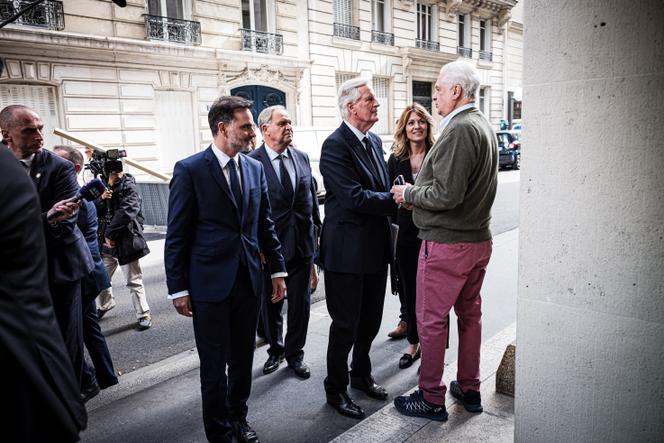


The figure is a deliberately spectacular one: around €60 billion. That was the impressive total financial effort that Prime Minister Michel Barnier has planned to implement, from 2025 onwards, to restore France's public finances. This figure was unveiled on Wednesday, October 2, at a press briefing organized by the prime minister's office and the Finance Ministry. As the new prime minister had announced the day before, in his government policy statement, two-thirds of this financial adjustment should consist of savings measures and the remaining third of tax hikes. The details of the plan have been set out in a draft budget bill submitted to the High Council of Public Finances on Tuesday evening and which will, in principle, be disclosed on October 10.
This massive amount is, in part, a matter of presentation. In 2024, the country's public deficit is expected to reach 6.1% of its gross domestic product (GDP), according to the Finance Ministry's new forecasts. Bringing this deficit down to 5% of GDP by 2025, the target Barnier has set for himself, would require an adjustment of 1.1% of GDP – around €30 billion. Yet the government has chosen to use a different figure on which to base the calculations it has communicated. It has compared the target deficit with the predicted 2025 deficit figure if nothing is done – around 7% of GDP. Moving from this hypothetical 7% to the 5% would require some €60 billion.
Presenting such an imposing figure has allowed Barnier to stress the size of the hole in the public accounts he has inherited, and to highlight his own determination. In particular, the €40 billion in cuts planned over one year would serve as a response to all those on the right who have suspected the new government of giving in to the "easy way" through raising taxes.
There are no easy answers, says the government. Indeed, there will be tax hikes, to the tune of some €20 billion. The "tax shock" has already been denounced by some voices. An extra tax on the profits of groups whose sales were in excess of €1 billion could, on its own, raise €8 billion. An exceptional contribution will also be requested of the "wealthiest" individuals.
Yet these temporary efforts are still limited, said a source at the prime minister's office: "We are very, very far from asking large groups and the wealthiest individuals for an effort of the same order of magnitude as the one the state provided to help them" in recent years, in the face of the Covid-19 and inflation crises. "We won't be making any general changes to the income tax scale for those who work every day," said Antoine Armand, the economy and finance minister, on the RTL radio station, on Wednesday.
You have 38.19% of this article left to read. The rest is for subscribers only.
